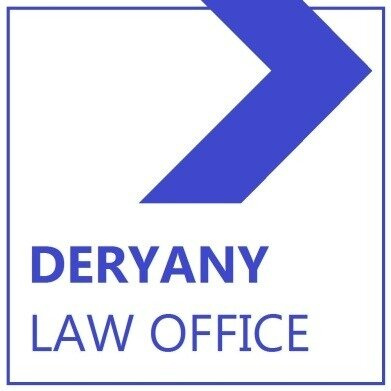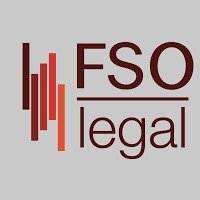Best Sanctions & Export Controls Lawyers in Indiana
Share your needs with us, get contacted by law firms.
Free. Takes 2 min.
Or refine your search by selecting a city:
List of the best lawyers in Indiana, United States
About Sanctions & Export Controls Law in Indiana, United States
Sanctions and export controls refer to laws and regulations that limit or restrict the movement of goods, technology, software, and services across national borders for reasons of national security, foreign policy, or economic interests. In Indiana, as in the rest of the United States, these laws are primarily governed at the federal level but can have important local implications for individuals, businesses, educators, and research institutions. Compliance is crucial, as violations can result in significant penalties, loss of business, and even criminal charges.
Why You May Need a Lawyer
There are many situations in which seeking legal advice on sanctions and export controls becomes necessary in Indiana. For example, you may be a manufacturer looking to export products overseas, a student or professor involved in international research, a logistics company transporting goods abroad, or a business acquiring technology from foreign vendors. Lawyers can help ensure compliance with federal rules, advise on license requirements, assist with voluntary disclosures in case of accidental violations, and represent clients facing investigations or enforcement actions. Legal guidance is critical in navigating complex and ever-changing regulations.
Local Laws Overview
While Indiana does not have its own separate sanctions or export control laws, businesses and individuals in the state are subject to United States federal laws and regulations. These include the Export Administration Regulations (EAR) administered by the Bureau of Industry and Security, the International Traffic in Arms Regulations (ITAR) overseen by the Directorate of Defense Trade Controls, and various sanctions administered by the Office of Foreign Assets Control (OFAC). Certain industries prevalent in Indiana, such as manufacturing, pharmaceuticals, and advanced technology, are particularly affected. Local law enforcement may also assist federal agencies in investigations or enforcement of these regulations.
Frequently Asked Questions
What are economic sanctions?
Economic sanctions are restrictive measures imposed by the United States government to achieve national security or foreign policy objectives. These restrictions can prohibit trade, investment, or interaction with certain countries, entities, or individuals.
Do Indiana companies have to comply with federal export controls?
Yes. All companies, organizations, and individuals in Indiana are required to comply with federal export control regulations when exporting goods, technology, or services from the United States.
What items are subject to export controls?
Items subject to export controls can include physical goods, technical data, software, and even certain services or training. The specific controls depend on the nature of the item, its destination, its end user, and its intended end use.
Are universities and research institutions in Indiana affected by these laws?
Yes. Universities and researchers can be affected if they engage in international collaborations, host foreign national students or scholars, or share controlled information or technology.
What are the penalties for violating sanctions or export controls?
Penalties can range from civil fines to significant criminal penalties, including imprisonment and loss of export privileges. Fines can reach millions of dollars per violation in severe cases.
How can I find out if I need an export license?
License requirements depend on the classification of your goods or technology, the country of export, the recipient, and the intended use. Legal counsel or an experienced compliance officer can help perform an assessment.
Can accidental violations still lead to punishment?
Yes. Even unintentional violations of export control or sanctions regulations can result in penalties. However, voluntary self-disclosures to authorities may mitigate enforcement actions.
What is a denied party list and how does it affect me?
A denied party list includes individuals or organizations that are prohibited from receiving certain U.S. goods or technology. Companies in Indiana must ensure they do not conduct business with parties on these lists.
Are state and local governments in Indiana involved in enforcement?
Enforcement is primarily handled at the federal level, but state and local authorities may assist federal agencies in investigations or respond to violations when appropriate.
Where can I get help if I am unsure about compliance?
Consulting with a knowledgeable sanctions and export controls attorney is strongly recommended. In addition, there are governmental resources and helplines for export compliance.
Additional Resources
There are several resources available to Indiana residents and businesses seeking guidance on sanctions and export controls:
- U.S. Department of Commerce, Bureau of Industry and Security (BIS)
- U.S. Department of State, Directorate of Defense Trade Controls (DDTC)
- U.S. Department of the Treasury, Office of Foreign Assets Control (OFAC)
- Indiana District Export Council (DEC)
- Small Business Development Center (SBDC) Export Assistance
- Indiana Economic Development Corporation
- Local chambers of commerce with international trade resources
- Indiana legal clinics or university export compliance offices
Next Steps
If you believe you require legal assistance with sanctions and export controls in Indiana, the following steps can help guide you:
- Gather all relevant information about your proposed exports, international business activities, and transactions.
- Consult with a specialized attorney who is knowledgeable in both federal export control laws and how they apply to Indiana businesses or residents.
- Request a formal compliance review or risk assessment if your activities involve international trade, research, or partnerships.
- If facing regulatory scrutiny or investigation, seek legal counsel before interacting with enforcement agencies.
- Stay informed about changes in federal regulations that could affect your business or personal activities.
Taking prompt and informed action is the best way to ensure compliance and avoid costly mistakes. A qualified lawyer can provide the guidance and representation needed to navigate this complex area of law effectively.
Lawzana helps you find the best lawyers and law firms in Indiana through a curated and pre-screened list of qualified legal professionals. Our platform offers rankings and detailed profiles of attorneys and law firms, allowing you to compare based on practice areas, including Sanctions & Export Controls, experience, and client feedback.
Each profile includes a description of the firm's areas of practice, client reviews, team members and partners, year of establishment, spoken languages, office locations, contact information, social media presence, and any published articles or resources. Most firms on our platform speak English and are experienced in both local and international legal matters.
Get a quote from top-rated law firms in Indiana, United States — quickly, securely, and without unnecessary hassle.
Disclaimer:
The information provided on this page is for general informational purposes only and does not constitute legal advice. While we strive to ensure the accuracy and relevance of the content, legal information may change over time, and interpretations of the law can vary. You should always consult with a qualified legal professional for advice specific to your situation.
We disclaim all liability for actions taken or not taken based on the content of this page. If you believe any information is incorrect or outdated, please contact us, and we will review and update it where appropriate.
Browse sanctions & export controls law firms by city in Indiana
Refine your search by selecting a city.














